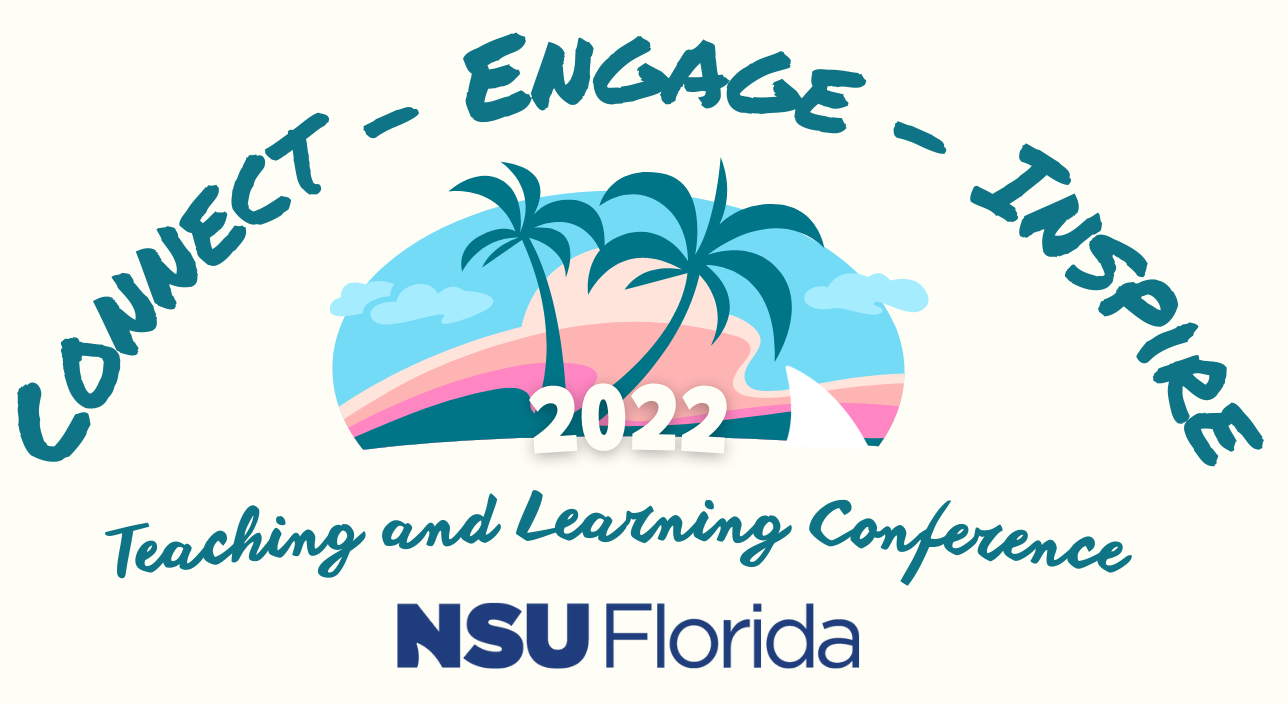Reimagining an Established CURE to Provide High-quality Digital Learning Experiences that are Intentionally Equitable, Inclusive and Accessible for all Students
Start Date
3-11-2022 10:30 AM
End Date
3-11-2022 11:15 AM
Keywords
Active Learning Strategies, Online Teaching/Canvas, Student Engagement Strategies
Abstract
In recent years, Course-based Undergraduate Research Experiences (CUREs) have become increasingly valuable models to cultivate student interest in research, especially when few other research opportunities at an institution exist. Since the start of the COVID-19 pandemic, there has been the need to operate in an online environment while maintaining high standards. Biochemistry Authentic Student Inquiry Lab (BASIL) students hypothesize and test functions of enzymes from the Protein Data Bank with no known function, utilizing a combination of wet-lab and computational approaches. Here we describe how this CURE was adapted to an online format, simulating the lab environment using a low stakes iterative assessment. Using Google forms, students answer questions about experimental background, procedure and lab safety that correlate with published BASIL experiments. Using a mix of multiple choice, free response, and video/ image-based questions, students engage with the material at a deeper level despite not being physically present in the lab. These forms can function as self-contained experiments or pre-lab/post-lab assignments to enhance the in-lab experience. The BASIL consortium is dedicated to developing high-quality teaching and learning experiences to reach and engage the modern learner. This CURE is flexible and has been found to improve the levels of personal comprehension and knowledge of STEM concepts and research design in students. These online modules provide another way for learners to reap the benefit of research-based courses in an ever-changing educational landscape. Built to equitably and inclusively reach and engage all students, these tools integrate intentional opportunities for community-building and interaction only possible in the digital environment. Novel strategies developed to accommodate all students will help to enhance exposure for undergraduate students to vital STEM research experiences and promote sustainability for institutions.
Learning Outcomes:
- Adapt curricula to the online modality.
- Develop active learning activities.
- Foster research interest in students.
Reimagining an Established CURE to Provide High-quality Digital Learning Experiences that are Intentionally Equitable, Inclusive and Accessible for all Students
Room 2: Learning Design for STEM
In recent years, Course-based Undergraduate Research Experiences (CUREs) have become increasingly valuable models to cultivate student interest in research, especially when few other research opportunities at an institution exist. Since the start of the COVID-19 pandemic, there has been the need to operate in an online environment while maintaining high standards. Biochemistry Authentic Student Inquiry Lab (BASIL) students hypothesize and test functions of enzymes from the Protein Data Bank with no known function, utilizing a combination of wet-lab and computational approaches. Here we describe how this CURE was adapted to an online format, simulating the lab environment using a low stakes iterative assessment. Using Google forms, students answer questions about experimental background, procedure and lab safety that correlate with published BASIL experiments. Using a mix of multiple choice, free response, and video/ image-based questions, students engage with the material at a deeper level despite not being physically present in the lab. These forms can function as self-contained experiments or pre-lab/post-lab assignments to enhance the in-lab experience. The BASIL consortium is dedicated to developing high-quality teaching and learning experiences to reach and engage the modern learner. This CURE is flexible and has been found to improve the levels of personal comprehension and knowledge of STEM concepts and research design in students. These online modules provide another way for learners to reap the benefit of research-based courses in an ever-changing educational landscape. Built to equitably and inclusively reach and engage all students, these tools integrate intentional opportunities for community-building and interaction only possible in the digital environment. Novel strategies developed to accommodate all students will help to enhance exposure for undergraduate students to vital STEM research experiences and promote sustainability for institutions.
Learning Outcomes:
- Adapt curricula to the online modality.
- Develop active learning activities.
- Foster research interest in students.


